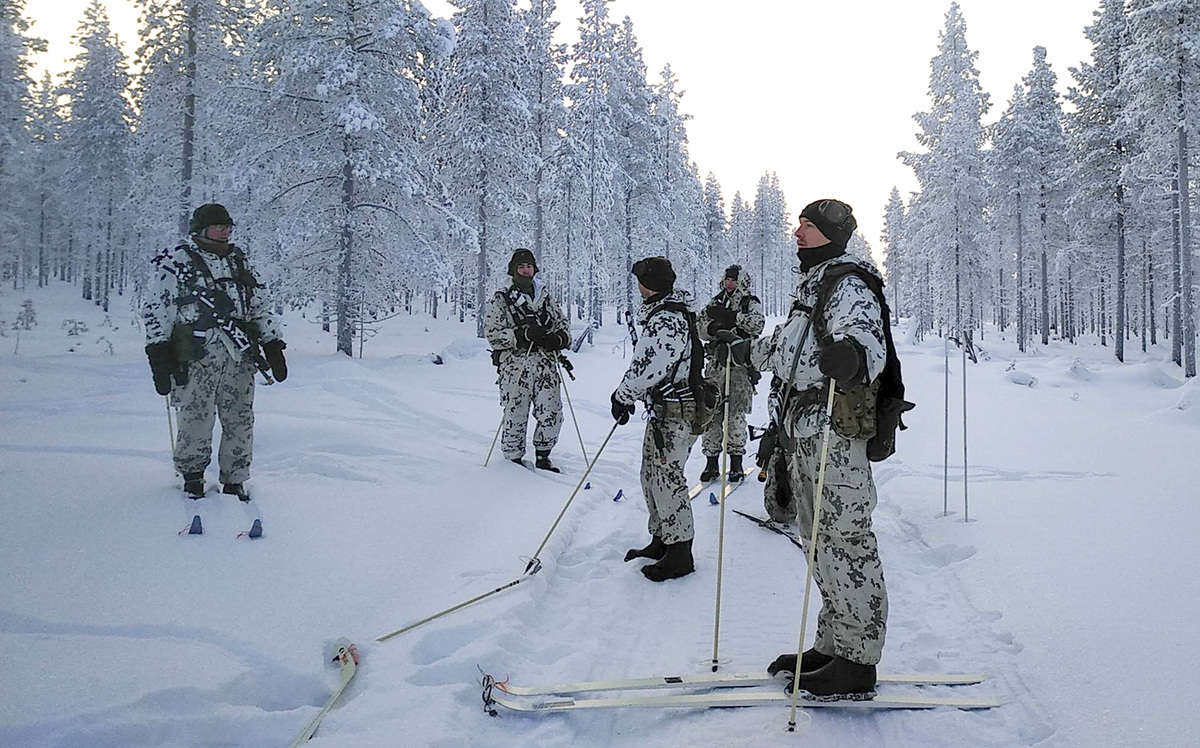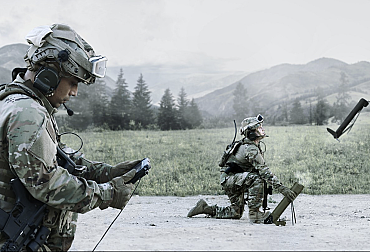NATO in a time of climate crisis: A new era of environmental security
In recent years, the North Atlantic Treaty Organization (NATO) has faced unprecedented challenges due to the escalating climate crisis. A NATO report from July reveals the complex impact of climate change on the Alliance's military operations, infrastructure, and strategic planning. It places environmental security at the center of NATO's focus and signals a fundamental transformation in its approach to global security.

The concept of environmental security has become prominent in international relations and security studies over the past few decades. It encompasses a broader spectrum of threats than traditional military conflicts, ranging from natural resource scarcity to natural disasters to geopolitical tensions caused by climate change. In response, NATO adopted a Climate Change and Security Action Plan in 2021, formally recognizing climate change as a key factor influencing the global security landscape.
This July's report represents the most comprehensive analysis to date of the effects of climate change on the Alliance's five operational domains: land, maritime, air, space, and cyber. The document not only identifies current and future challenges but also outlines the strategic directions NATO must pursue to remain effective in a changing world.
Maritime Domain
Climate change is significantly affecting the maritime environment, directly impacting NATO's operational capabilities. The Alliance's Centre for Maritime Research and Experimentation (CMRE) conducted an extensive study on changes in underwater sound propagation. Results show that warming oceans are altering acoustic conditions, which could fundamentally affect submarine detection. In some areas of the Atlantic, "sound transmission losses" are expected to increase, potentially complicating NATO's anti-submarine operations.
Moreover, the Alliance must prepare for new geopolitical realities in the Arctic. Melting sea ice is opening new shipping lanes and granting access to previously untapped natural resources. This heightens the region's strategic importance and requires NATO to reassess its presence and capabilities in the area. The report warns of Russia's growing activity in the Arctic and the potential for China to enter the region, creating new security challenges.
Terrestrial Domain
Climate change is also significantly affecting NATO's ground operations and infrastructure. An analysis of Finland's Rovajärvi training area, the largest in Western Europe, shows how climate change is altering traditional military training. Predictions of shorter winters and higher average temperatures may disrupt winter training programs and require the adaptation of military procedures.
The report also highlights the increasing risk of damage to military bases and installations due to extreme weather events. For example, in July 2023, a fire in Greece threatened an air force ammunition depot, illustrating the need to rethink the design and location of critical military infrastructure in light of changing climatic conditions.
Air Domain
Climate change poses significant challenges to NATO's air operations. A study on the C-17 Globemaster III transport aircraft found that rising temperatures could reduce its lift capacity, directly impacting the Alliance's logistics operations, especially in hot climates. The report also warns of increased turbulence and more frequent extreme weather events, which may hinder air operations.
Space Domain
Although space operations are not directly affected by atmospheric changes, climate change threatens the ground infrastructure that supports space systems. The report notes the increased risk to spaceports and communication centers in coastal areas due to rising sea levels and more frequent storms.
Cyber Domain
In the cyber domain, the report identifies a new trend: the rise of disinformation campaigns targeting climate change. Russia and China have been singled out as major sources of false climate information aimed at undermining mitigation and adaptation efforts. These tactics represent a sophisticated form of hybrid warfare that can shape public opinion and diminish political will to address the climate crisis.
Conclusion
The complexity of the climate threat demands that NATO fundamentally rethink its traditional approach to security. Environmental security is becoming a central element of the Alliance's strategic thinking, necessitating the integration of climate factors into every aspect of its operations, from intelligence analysis to military planning to international cooperation.
NATO must develop new capabilities to anticipate and respond to climate threats. This could involve creating dedicated climate-related crisis response units to quickly address natural disasters and humanitarian crises. Additionally, NATO should invest in advanced predictive models to better anticipate and plan for various climate scenarios. Artificial intelligence, which we recently highlighted as important, will play a key role.
At the same time, the Alliance faces a dilemma: how to balance the need to maintain military readiness while reducing its own carbon footprint. This challenge calls for innovative approaches to military logistics, energy, and the development of new technologies. NATO has the opportunity to lead in implementing sustainable technologies in the military sector, which could also have significant implications for the civilian sector.
Strengthening the resilience of critical infrastructure to climate risks is another crucial area. This applies not only to military installations but also to civilian systems that support military operations. NATO should assist member states in developing adaptation strategies and sharing best practices for climate resilience.
Finally, the Alliance must rethink its approach to international cooperation on environmental security. Climate change is a global challenge that requires a coordinated international response. NATO should work to strengthen partnerships with traditional allies, international environmental organizations, and developing countries that are often most vulnerable to climate change.
NATO stands on the threshold of a new era, where environmental security plays a central role. The Alliance has a unique opportunity to lead in climate security and contribute to a more resilient and sustainable world. However, this will require bold action and innovative thinking.








